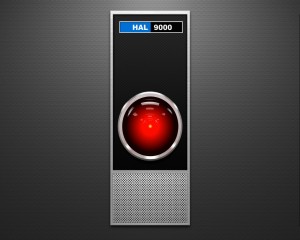Curmudgeon:
An ill-tempered (frequently old) person full of stubborn ideas or opinions.
While I don’t necessarily see myself as “ill-tempered”, I’m certainly old and filled with opinions. I do, however, own a flip phone. I talk on the phone; nothing more nothing less. I don’t text or message; I don’t take pictures, I have no apps. My phone wouldn’t even know what an app is. But I’m not the only one:
“Legendary investor Warren Buffett said the market for Apple‘s iPhones is not yet saturated, counting himself as a notable holdout.
“When I actually buy it, it’s all over, folks. The last person has bought it,” Buffett joked.
Buffett showed off his retro Samsung flip phone on CNBC’s “Squawk Box” on Wednesday and didn’t seem eager to trade it in for a smartphone, despite some weighty encouragement.
“Tim Cook sent me a Christmas card again this year saying he’s going to sell me an iPhone this year,” Buffett said. “He keeps sending me these reminders every Christmas.”

Buffett is far from the only Apple holdout.” (1)
There’s no doubt the “dumb” phone is a thing of the past — or so we’re told. All it does is make phone calls.
We’re told we need smart phones. We need to be connected to the world all the time. We need our texts, our social media, all our Internet connections. Do we – do we really?
Prior to mobile telecommunications, we had land lines. At home, at work, or from a pay phone, we reached out to whomerver as we needed to do so. I lived the first sixty-plus years of my life quite nicely without having any need for a portable telephone. I was forced into buying one.
I traveled all over the country without a phone. When I flew, I called my wife from a pay phone (remember those?) when I arrived at the airport and she came to pick me up, if she wasn’t there already. One flight changed that.
I flew into Philadephia one evening. By then, most people seemed to have phones. As soon as we landed, other passengers were breaking out their phones calling someone. I followed my normal routine, which was to get off the plane, find a phone, and call my wife to pick me up.
Except I could not find a public pay phone. They were gone. The airport always had loads of pay phones throughout the terminal, but not any longer. I gathered the phones were no longer being used very much, so they took them out. I walked all over the terminal trying to find a phone. Finally, after what seemed like endless searching, I found one in a corner of the baggage claim. It was near the luggage carousel and near a door, and it was noisy as hell. I could hardly hear my wife at all as I screamed into the phone to make myself heard over the din. The warrant had been served — I bought a phone.
Don’t get me wrong; it was convenient. I could call from the airport or anyplace else; I had moved into the 21st Century, or so I thought.
By the time I purchased my “dumb” phone, they were already disapearing, being rapidly replaced by “smart” phones that did everything under the sun. Almost everyone I know has one, and the younger the person, the more it seems those gadgets are as necessary as breathing.
And therein lies the problem.
I’m old, but I’m fairly savy about basic technology. I got my first computer all the way back in 1987. I used to know how to program Fortran (anyone even know what that is?). I learned DOS to work my first computers; Windows wasn’t even on the market yet. I taught myself how to write HTML from scratch. Computers and technology can be fun and useful — but I think they have decided drawbacks.
Everywhere I go today I see people staring at the screens of their smartphones. More often than not, they don’t seem to be talking on them, rather they are “fingering” them, flipping through something or other to do something or other. They often seem to be totally unaware of the world around them. And that is unfortunate.
Don’t get me wrong; I know they can be useful gadgets. Whether it is checking the weather, banking online, or using the GPS. No argument. To me, however, they are an “attractive nuisance”. Rather than simply using them to perform a task, many people seem unable to leave the damn things alone, even for a short time.
I taught college for a number of years, and always prohibited the use of cellphones in my classroom. I notified students on day one that if I caught them using a phone in class, I would dismiss them for the day. Every semester, especially during the first few weeks, I removed student after student from my class. They tried every trick in the book to hide what they were doing, but it was always their eyes — I saw they were staring at something, usually downward, at the phone they were trying to conceal on their lap or elsewhere. Most of them eventually got the message, but there were others I had to bounce completely from the class, such was their obsession.
It’s funny — But it’s not
I started writing this as a tongue-in-cheek piece about being old.
As I began reading online however, I realized that smartphone addiction is not a laughing matter. Millions of people seem to exhibit signs of addiction to their smartphones. CNN even coined a term for it “Nomophobia” (NO MObile PHOnephoBIA).(6)
“…The average American teenager who uses a smart phone receives her first phone at age 10 and spends over 4.5 hours a day on it (excluding texting and talking).” Three-quarters of teens admit to checking their phones every hour; half describe themselves as “addicted.”…(7)
“… adult iPhone users who were separated from their smartphones but could hear them ringing experienced spikes in blood pressure and heart rate, as well as increased feelings of anxiety and unpleasantness…” (7)
Have we really gone that far down the drain? Technology can be a wonderful thing, making or lives easier and more productive. The thing is, technology is meant to be used; but it seems with smartphones we are being used.
Watch this video:
A smartphone is a tool, a useful tool to be sure, but just a tool. Think of it like a dishwasher. It makes the task easier, but we could certainly live without it — or could we? Of course we could. People were hand washing dishes for eons before dishwashers; it is a convenience, nothing more and nothing less.
Technology makes life easier, and sometimes make us lazy. Think back before televisions had remote controls; you had to get up and manually change channels. No one does that anymore; it’s easier to use the remote, and we’ve become more lazy. But what happens if we lose the remote, or the batteries go dead and we don’t have replacements? Do we curl up on the couch and moan? No, we get up off our lazy ass and change the channels — although we definitely buy new batteries the next day. It’s a little annoyance.
This doesn’t seem to be the case with the smartphone.
“As with many forms of addiction, smartphone addiction is also something that often stems from other underlying emotional and psychological issues. It can be a side effect of depression or obsessive-compulsive disorder. Overuse of a handset can be a crutch that people with post-traumatic stress, attention deficit and social anxiety lean on too.” (8)
One problem I see, is that folks who are addicted to their phones won’t even acknowledge it. Does the alcoholic know he is an achoholic? Does the drug addict know he is an addict? I think deep inside, the answer is yes. The smartphone addict? Not so much. Try telling someone they are addicted to their phone and watch the response.
Smartphone addiction is socially acceptable where other addictions are not. The alcoholic or drug addict often tries to hide their behavior. Phone addiction doesn’t hide; it resides in plain sight.
So what’s the bottom line here, what’s the takeaway? I think it’s the acknowledgement that technology can be a wonderful thing, but there can also be a downside. When we use it as a tool, it can be very useful. When the technology uses us, it can become problematic.
Final footnote and confession: I’m on the verge of acquiring a smartphone. It turns out my old-style phone no longer functions in some environments, notably inside some buildings. Maybe this is a form of planned obsolesence. So if you see me with a smartphone, don’t call me a hypocrite. I held out as long as I could. Anyone interested in my collection of cassettes or VHS tapes ?
(1.) Warren Buffet uses Flip Phone — CNBC
(2.) We’re All Addicted to Smart Phones — The Guardian
(3.) Steve Hilton — No Cellphone
(4.) Making His Phone Dumber was the Smartest Thing He Ever Did — Boston Globe
(5.) Phone Addiction is Real — Forbes Magazine
(6.) Smartphone Addiction — CNN
(7.) Even Apple Investors are Worried About Smartphone Addiction
(8.)The Growing Problem of Smartphone Addiction — Techaddiction




